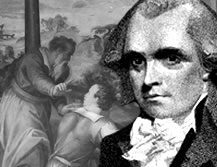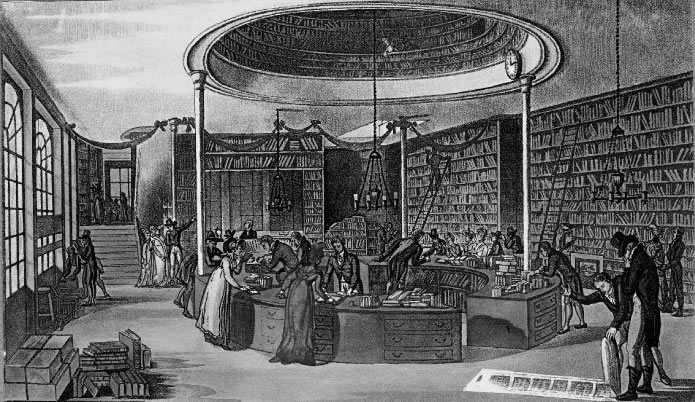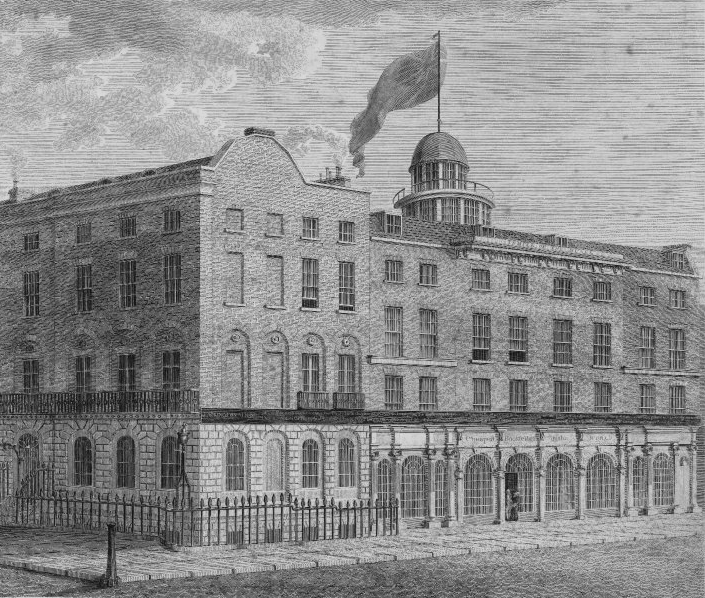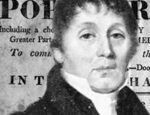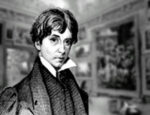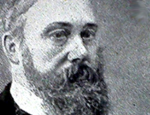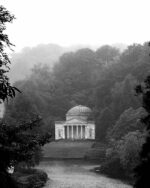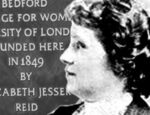Description
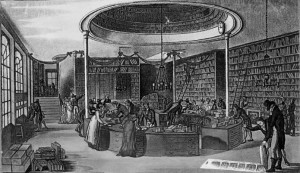 Welcome! Welcome! to James Lackington’s Temple of the Muses, “the cheapest booksellers in the world.” As a schoolboy John Keats used to visit this magical bookshop in Finsbury Square to gaze up at the towering shelves and read the books for free in the “lounging rooms”. It was in this very shop that Keats first met his publishers, John Taylor and James Augustus Hessey, who both worked there under Lackington. As you can tell by its name, and the shop’s decor (inside and out), The Temple of the Muses was designed to feel like a classical shrine to reading and learning. You could even pay for books with specially minted tokens, bearing its eccentric owner’s portrait on one side and a classical figure on the other (on this one it’s a representation of Fama, or Fame).
Welcome! Welcome! to James Lackington’s Temple of the Muses, “the cheapest booksellers in the world.” As a schoolboy John Keats used to visit this magical bookshop in Finsbury Square to gaze up at the towering shelves and read the books for free in the “lounging rooms”. It was in this very shop that Keats first met his publishers, John Taylor and James Augustus Hessey, who both worked there under Lackington. As you can tell by its name, and the shop’s decor (inside and out), The Temple of the Muses was designed to feel like a classical shrine to reading and learning. You could even pay for books with specially minted tokens, bearing its eccentric owner’s portrait on one side and a classical figure on the other (on this one it’s a representation of Fama, or Fame).
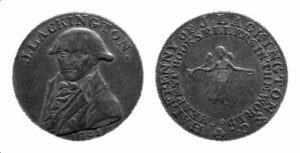
James Lackington was born in Wellington to a journeyman shoemaker and a local weaver. His father was a drunkard and his family so poor that he could only afford a few years in school. At the age of ten he left home to become “the agent of an eminent pie merchant”. Four years later he took up his father’s trade, becoming apprentice to a Taunton shoemaker. In 1768 he moved to Bristol, where he met his cobbling partner John Jones. The money they made as shoemakers (save that which they allegedly spent in the company of women) went on buying second-hand books. Years later, after the death of his grandfather – who left a legacy of ten pounds, with which they opened up their first bookshop in in East London – these books would form part of their early selling stock.
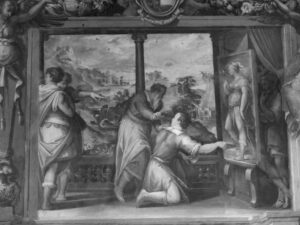 Pliny the Elder in his Naturalis Historia (35.85) tells the story of how a shoemaker once pointed out that the famous painter, Apelles, had inaccurately rendered a sandal. On admitting the fault, Apelles corrected his work. Bolstered by his successful input the shoemaker began to criticise further the painter’s work, to which criticism Apelles responded shortly: Sutor, ne ultra crepidam — a shoemaker (sutor) [should not judge] beyond the sandal (crepida). Lackington proudly (and wittily) twisted this adage, placing it at the head of the frontispiece of his memoir, directly above a defiant and deep-browed portrait:
Pliny the Elder in his Naturalis Historia (35.85) tells the story of how a shoemaker once pointed out that the famous painter, Apelles, had inaccurately rendered a sandal. On admitting the fault, Apelles corrected his work. Bolstered by his successful input the shoemaker began to criticise further the painter’s work, to which criticism Apelles responded shortly: Sutor, ne ultra crepidam — a shoemaker (sutor) [should not judge] beyond the sandal (crepida). Lackington proudly (and wittily) twisted this adage, placing it at the head of the frontispiece of his memoir, directly above a defiant and deep-browed portrait:
Sutor Ultra Crepidam Feliciter Ausus – a shoemaker having dared successfully [to judge] beyond the sandal. And he continues in English… Who a few years since, Began Business with Five Pounds, / Now sells one hundred thousand volumes annually.
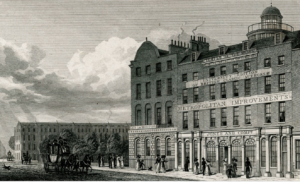 Inside his opulent Temple of the Muses with its towers of books, antique paintings, busts, classical knick-knacks, and Romanesque cupola, Lackington prided himself on selling affordable books, and claimed with pride that he had ‘Been highly instrumental in diffusing the general desire for reading, now so prevalent among the inferior orders of society’ (Memoirs, letter 25).. In what appears to have been an innovation in the world of bookselling, he bought in high volume and sold his books cheap, and by cash exchange only. On his carriage were inscribed the words ‘Small profits do great things’.
Inside his opulent Temple of the Muses with its towers of books, antique paintings, busts, classical knick-knacks, and Romanesque cupola, Lackington prided himself on selling affordable books, and claimed with pride that he had ‘Been highly instrumental in diffusing the general desire for reading, now so prevalent among the inferior orders of society’ (Memoirs, letter 25).. In what appears to have been an innovation in the world of bookselling, he bought in high volume and sold his books cheap, and by cash exchange only. On his carriage were inscribed the words ‘Small profits do great things’.

